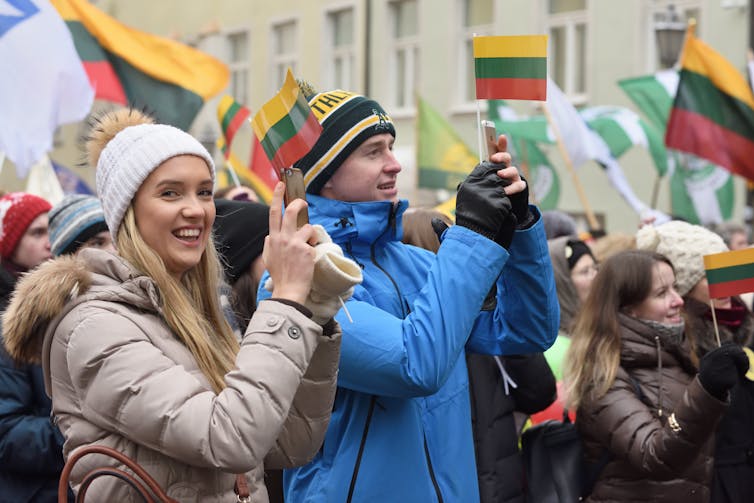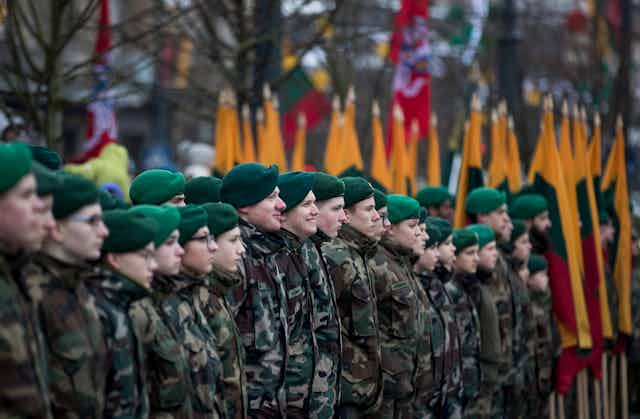The term transition economies is what we now use to describe Eastern European countries that, until 1991, were under the grip of the Soviet Union before moving away from a centrally planned and Communist economic system and towards a free enterprise and market economy.
An invitation from the LCC International University of Lithuania to spend three months as a visiting professor on its campus afforded me the opportunity to visit Lithuania, one of those Eastern European countries, as it continues that transition.
Two factors weighed in my decision to accept their invitation. First, it would be an intellectual adventure and an opportunity to play an academic James Bond in a country that few academics have seen.
The second reason was to analyze the transitional phase of the Lithuanian economy from a Communist economy to a free market, entrepreneurial Western economy.
Lithuania’s strategic importance
What’s happening in Lithuania right now is in sharp contrast to what transpired in the past.
In one of his most famous speeches during the Cold War period, former British Prime Minister Winston Churchill remarked in his signature growly voice: “From Stettin in the Baltic to Trieste in the Adriatic, an iron curtain has descended across the continent.”
Lithuania has always had a strategic military importance because of its geopolitical position on the Baltic Sea. It’s attracted Napoleon Bonaparte, Josef Stalin and Adolf Hitler, succumbing to military conquests from Prussia, Germany, the Nazis and the Soviet Union over the centuries.
Nonetheless, its cultural vitality has prevailed and it’s received international accolades in music, theatre, literature and the visual arts, among them Jonas Mekas, a filmmaker, poet and artist who received the Los Angeles Film Critics Association’s Award in 2007, and Oskaras Koršunovas, the noted contemporary Lithuanian theatre director, playwright and choreographer.
My overarching impression of Lithuania is that it’s impatient. It seems to be in a hurry to make up for the lost time that it spent as a member of the Soviet Bloc. It wants to sprint to a Western-style economy in weeks instead of years.
It’s economically ambitious but politically fragile. Every day Lithuanians keep looking over their shoulders to make sure the Russians haven’t invaded and crossed the border.
Generational divide
During my time in Lithuania, I asked many Lithuanians: “Are you better off now than you were under the Soviet Union?” I received two different answers depending on the age and generation of the person answering the question.
On the one hand, seniors and pensioners said they were better off during the Soviet occupation and the Communist economic system. That’s because, they said, even though they were severely limited in the choice of goods and products available, they could nevertheless afford to buy them. Now, they said, they have more choice of goods but they’re priced beyond reach.
The response from the younger generation was much different. Clearly they valued their economic freedom in a free-market economy. They were pre-disposed to being more entrepreneurial risk-takers. They embraced the fact that the free enterprise capitalist economy provided them with more opportunities, but they were also cognizant that their success was going to be determined by their ambition and smarts.
Future leaders
University professors have a unique, daunting and exciting responsibility. They are tasked with educating, empowering and inspiring the next generation of leaders — not just political leaders, but those in all fields of human endeavour, including the arts and sciences, business and technology, agriculture and trade, fisheries and medicine, engineering and community service.
As the temporary custodians of our most valuable economic asset, university professors are directed to shape, develop and nurture the hearts and minds of our young women and men.
My greatest apprehension in Lithuania was teaching a student body that was very different from my Canadian students.

My students came from Russia, Chechnya, Lithuania, Ukraine, Georgia, Belarus, Moldova, Albania, Armenia and Kazakhstan. It turns out my fears were unnecessary. The young women and men who are poised to become the new leaders of Eastern Europe were a delight to teach.
All of them were fluently trilingual. They spoke their native language, Russian and English. They were engaged in their studies, disciplined in their academic pursuits, bright, resourceful and critical thinkers. They had an insatiable desire to learn about the West and in particular how free enterprise worked in North America.
They were academically well-prepared. Their high schools had performed a stellar job in preparing them for university. They were conversant in current affairs and had a global mindset. I was astounded to learn that Lithuania has a literacy rate of 99.8 per cent.
There’s no denying they’re determined to chart a new course of transformational change from a centrally planned economy to a free market system.
Corruption is a word that was often repeated during frank conversations in describing the Communist system and also the current economic and political environment. My students were averse to corruption, determined to wipe it out if they’re ever in positions of authority and leadership.
I pressed them to give me concrete examples of the corruption that they encountered. One of the examples most often cited was their friends who landed jobs because their fathers were politicians. I joked: This happens in Canada too, but we call it networking.
They mentioned more serious violations, including bribes to government officials and the US$1 billion still missing from several Moldovan banks.
Economic realignments
One of the visible changes taking place in Lithuania right now is the reconfiguration of the country’s transportation infrastructure.
This involves re-engineering roads, railways and plane destinations away from the Soviet system where “all roads lead to Moscow” to a more modern outreach, with new destinations towards central and western Europe.
The ultimate prize for transition economies is full membership in the European Union. Indeed, some of them, including Lithuania and also Poland, Latvia, Estonia and Slovenia, have already received that coveted reward, mostly for geopolitical strategic reasons.
However, most remain in a holding pattern in order to give them time to renovate their machinery of economic governance, remove systemic corruption, improve their public finances and construct a welcoming foreign investment environment.
I left Lithuania with a deep sense of optimism. It was based on the fact that transition economies are poised for a successful future — one that will be driven by the young women and men who are currently at university.
I am confident that they are capable of providing the leadership, energy and vision to confront the challenges and take advantage of the opportunities in their Eastern European countries for the remainder of the 21st century.

